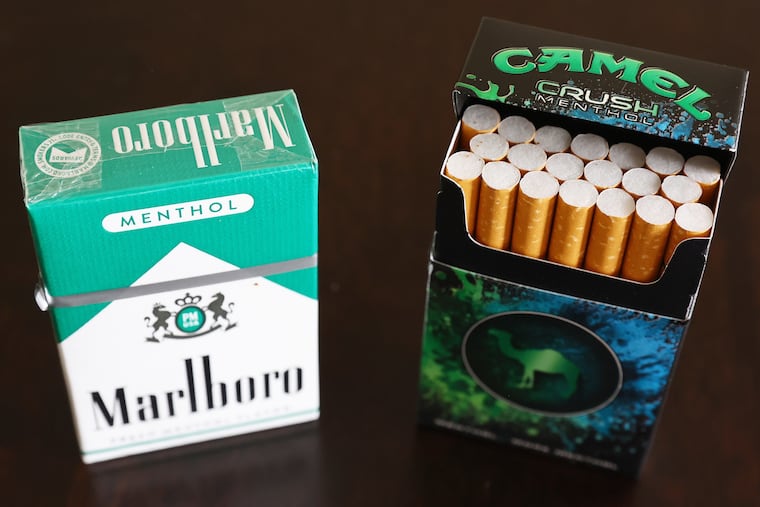Rutgers researchers receive more than $7 million to study perceptions of a ban on menthol cigarettes
Researchers say it's crucial to study how Black and Hispanic smokers perceive messaging from the tobacco industry around the menthol ban.

Researchers at Rutgers University have received more than $7 million to study disinformation and marketing around a proposed federal ban on menthol cigarettes and flavored cigars — with a particular focus on how such information affects Black and Hispanic smokers.
Kymberle Sterling, the associate director for justice, equity, diversity, and inclusion at the Rutgers Institute for Nicotine and Tobacco Studies, will lead two studies funded by the National Institute on Minority Health and Health Disparities and the National Institute on Drug Abuse.
The proposed federal ban on menthol cigarettes and flavored cigars was supposed to take effect last year, but in December was pushed off until at least March, dismaying public health officials.
Menthol cigarettes are mint-flavored cigarettes that are attractive to some smokers because their flavor is more appealing. Research has found that menthol cigarettes — which the tobacco industry markets heavily in Black communities — contribute to racial health disparities among smokers.
Menthol cigarettes in Black communities
Black smokers are more likely to use menthol cigarettes than other demographic groups, and the Centers for Disease Control and Prevention estimates that menthol cigarettes have contributed to some 157,000 premature deaths among Black Americans between 1980 and 2018. People who smoke menthols also have a more difficult time quitting smoking than people who smoke non-menthol cigarettes, the CDC says, although why isn’t exactly clear.
Sterling said it’s crucial to study how Black and Hispanic smokers, who also tend to smoke more menthols than their white counterparts, perceive messaging from the tobacco industry around the menthol ban.
Opponents of the ban, some of whom have ties to the tobacco industry, have raised concerns that the plan will contribute to over-policing of Black communities and businesses.
But supporters of the ban, like Sterling, say eliminating menthol cigarettes will save hundreds of thousands of lives, especially in Black communities where menthol use is prevalent.
“We know that police discrimination among African American communities is a problem,” Sterling said. “However, the tobacco industry is co-opting that and using that real social justice issue as a way to promote fear — and sell their product.”
Funding counter-messaging
Her team plans to use grant funding to develop counter-messaging that debunks false information and provides facts about menthol cigarettes. The group plans to study the effectiveness of their public health campaign over five years. Researchers also plan to work with community members to educate people about the menthol and flavored cigar ban.
“What we would ideally like to do is develop a set of messages that our community partners can disseminate in their community. Once this grant is wrapped up, we don’t want the work to stop, because the tobacco industry won’t stop,” Sterling said.
Sterling will also study how the tobacco industry reacts when the ban is in place, for instance tracking whether cigar manufacturers change their packaging or marketing techniques to draw in customers.
“We’re looking at how young adults are exposed to this repackaging as well as what sort of sociopolitical rhetoric the industry will put out,” Sterling said.